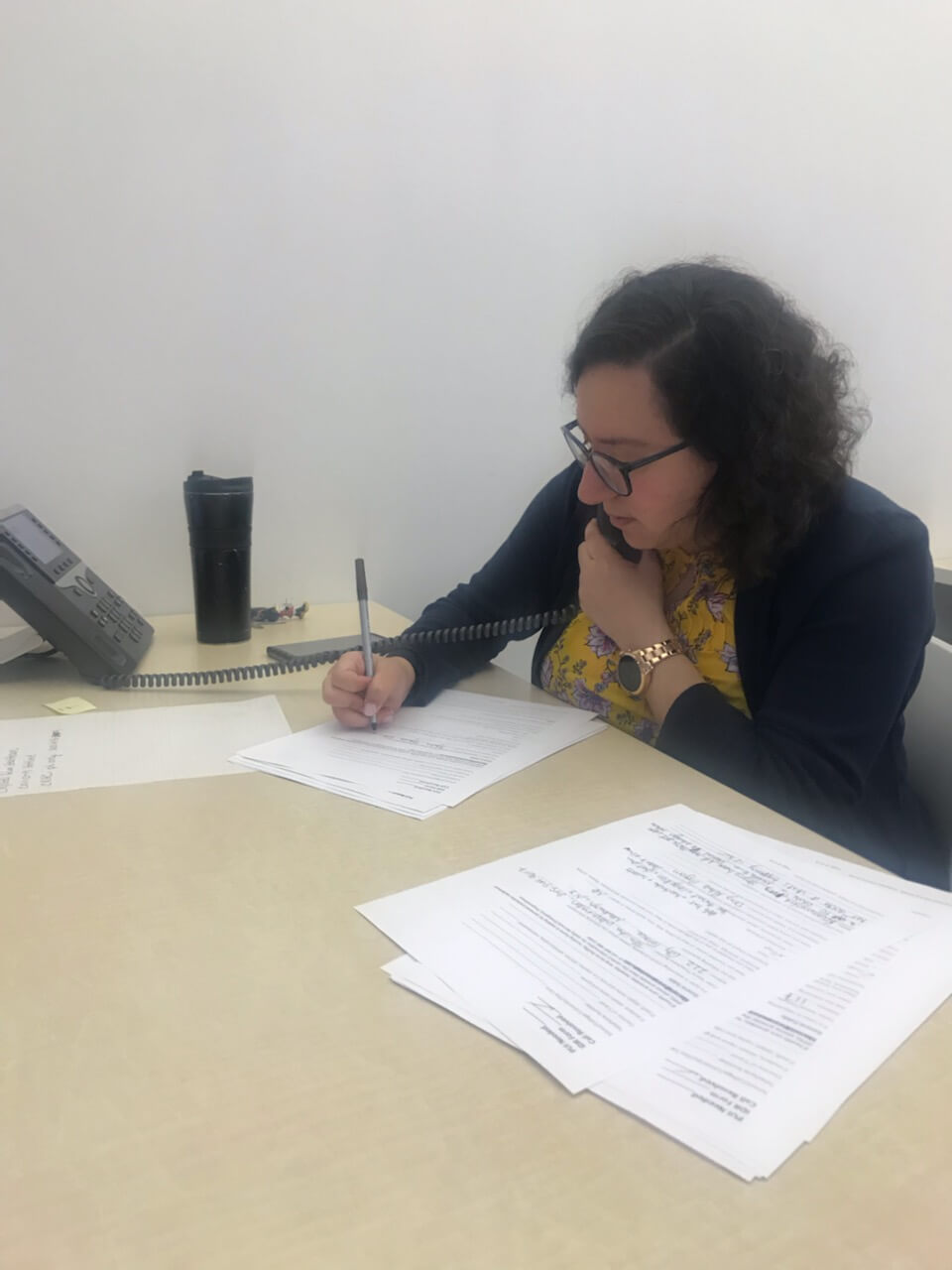TouroCOM Middletown Students Help Town Deal with Coronavirus Outbreak
Med Students Answer Calls and Questions from Residents About COVID-19

When Orange County needed help dealing with the coronavirus outbreak, medical students at TouroCOM Middletown were ready and there.
Last week, more than a dozen students at TouroCOM Middletown manned the phone bank of Orange County’s Department of Health. The center was blanketed with calls and students provided information to residents about testing, symptoms and available resources.
The volunteering effort began with an email from TouroCOM Executive Dean Dr. Kenneth Steier asking students if they could help.
“The humble service of humanity is an important part of our mission at Touro,” said Dr. Steier. “As our community struggles through this pandemic, we are committed to assisting in whatever way we can.”
After getting the email from Dr. Steier, student leader Jermeen El-Zabet reached out to a member of the Department of Health and offered to create a schedule for the volunteers. “It got filled within a day,” said El-Zabet. “The general feeling was we can’t sit back and not do anything. This is the field we chose to put ourselves in for the rest of our lives, and now there’s a crisis. There are thousands of people affected and if there’s anything we can do, it’s our duty to do it. In a couple of years, we’ll be physicians and be on the frontlines, but right now we can do whatever we can.”
The students’ connection with Middletown was also an important factor.
“TouroCOM Middletown has always focused on outreach to the community and to the public,” recalled El-Zabet. “Middletown is not a big city and the town has always been there for us. The rotary club had us all over for dinner when we first arrived. We had planned a health fair on Sunday but since that was cancelled, we figured this was a good way to help out.”
Master’s student Shirley Rosales Mejia was an especially valuable volunteer since she is fluent in Spanish and could help Spanish-speaking residents without relying on a translator. “We’re going to be a part of the healthcare system eventually and this is a little step we can take to help out,” said Mejia about her efforts.
On Saturday, Mejia said the office was quiet; but the amount of phone calls grew exponentially when she volunteered on Tuesday. She estimated that she answered close to three dozen calls.
“We explained that if they felt they had been exposed to the virus they needed to quarantine themselves,” Mejia explained. “If their symptoms persisted and didn’t get better, we told them what steps to take. Many people called who were mad, so we tried to reassure them and be patient with them.”
Neha Shiveshvarkar had a similar experience. “The calls were non-stop,” said Shiveshvarkar. “A lot of us were driven to help by the calling of community service. We felt like we were making a difference.”
“It was also educational in a way,” continued Shiveshvarkar. “We saw how the Department of Health works during a pandemic. We were given situation training and education and we also learned about the processes involved in dealing with a situation like this and what guidelines are given to the public.”
The students said that the phone calls ranged widely: from young adults with pre-existing conditions to elderly members of the populations who were already showing symptoms. Several callers simply called out of a sense of panic. “At the end of our conversations, we could feel the callers’ anxiety drop,” said Shiveshvarkar.
El-Zabet even fielded a call from a physician. “She wasn’t sure what to do,” said El-Zabet. “I told her it was up to her discretion. She asked about how many symptoms were required for testing; it’s a good question since testing supplies are running low.”
More than 30 TouroCOM Middletown students have signed up to work the phonelines this week.

